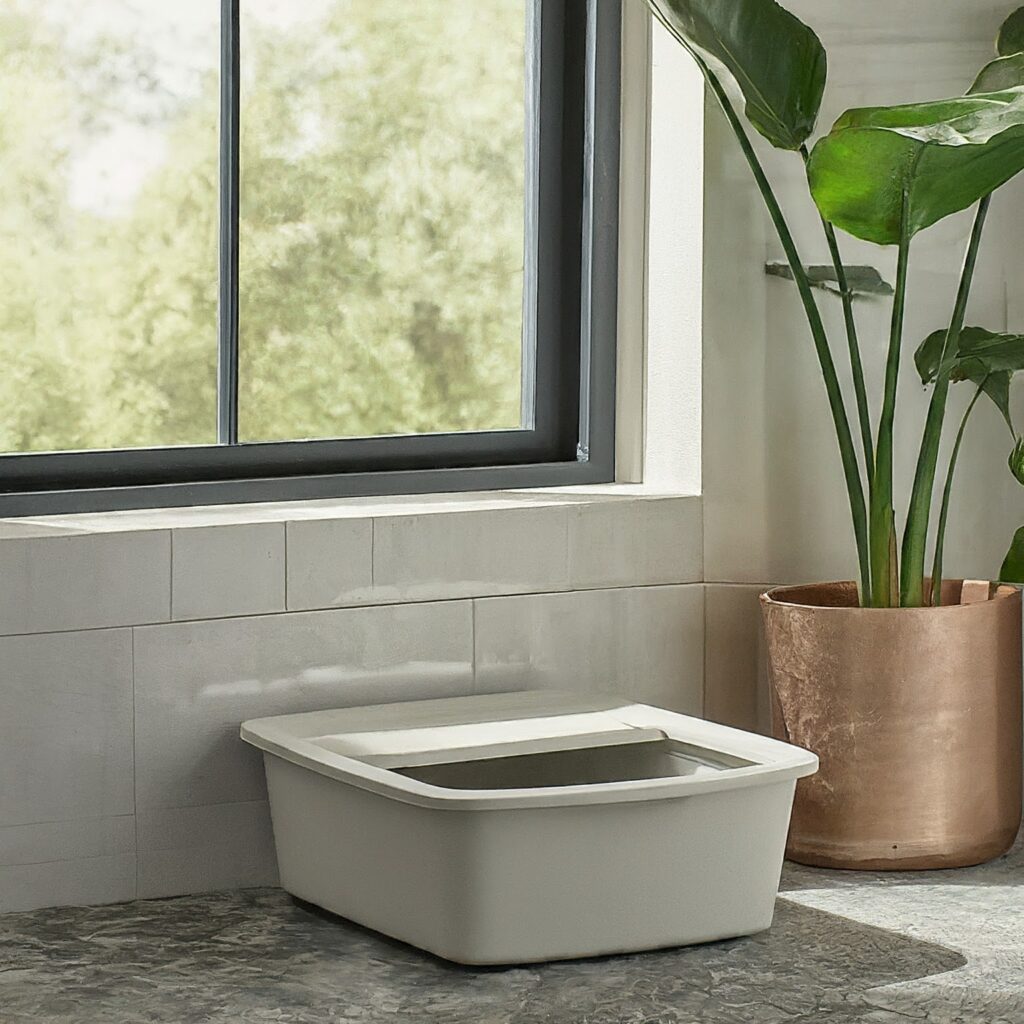Sometimes you go to replace your cat litter or to scoop it, and you find maggots or bed bugs in your litter; that is a very distressing situation for you. This issue not only raises concerns about cleanliness and hygiene but also prompts worries about the health implications for both your cat and household members.
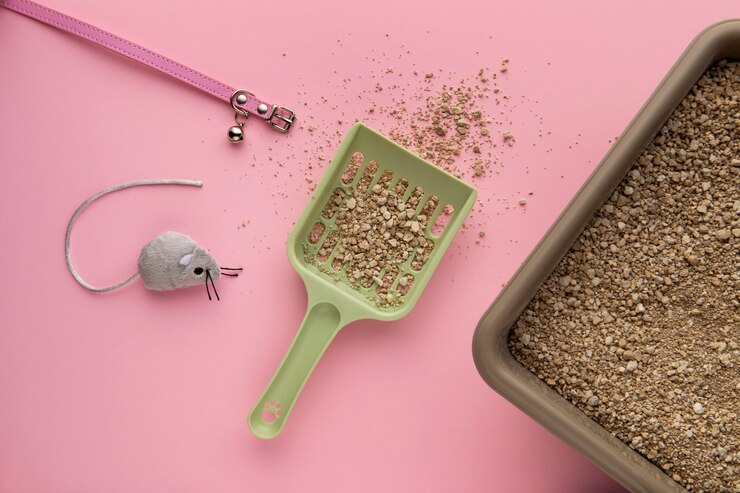
Understanding what maggots are, how they end up in the litter box, and how to effectively prevent and deal with them is crucial for maintaining a healthy environment for your pet.
What are Maggots?
Maggots are the larval stage of flies, typically from the order Diptera. These larvae are often white or cream-colored, legless, and have worm-like appearance. Maggots are scavengers, feeding on decaying organic matter, which provides them with the nutrients needed to grow and eventually pupate into adult flies.
Our Recommended Products to Avoid Maggots in Cat Litter Boxes
1. Covered Litter Boxes with Odor Control
Why: Maggots thrive in open, exposed environments. A covered litter box helps trap odor and limits flies from laying eggs in litter.
✅ Recommended Product:
Amazon Basics Hooded Cat Litter Box
- Enclosed design blocks fly access
- Reduces odors
- Stylish & non-scary for cats
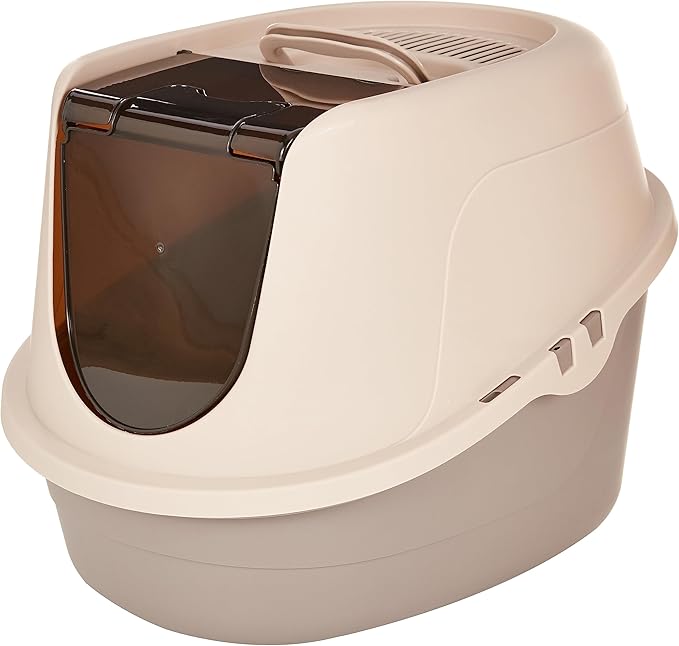
2. Cat Litter with Natural Insect-Repellent Properties
Why: Some natural litters (like pine, cassava, or walnut) deter flies due to scent or dryness.
✅ Recommended Product:
Naturally Fresh Walnut-Based Cat Litter
- Quick-drying = less moisture = fewer maggots
- Natural insect deterrent
- Clumps fast to remove waste easily
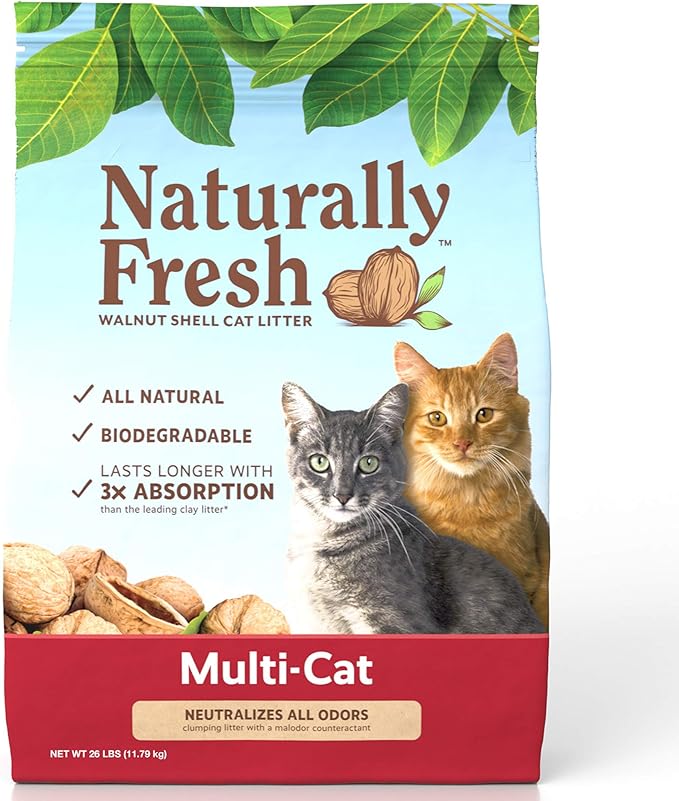
3. Litter Box Deodorizers or Powders
Why: Deodorizers reduce foul smells that attract flies.
✅ Recommended Product:
Arm & Hammer Cat Litter Deodorizer
- Contains baking soda to neutralize odor
- Helps keep litter fresh longer
- Highly recommended by cat lovers
- Use this coupon code 284E7F72 to get a discount

4. Fly Traps (Non-toxic for Pets)
Why: Control fly population near the litter box to prevent egg-laying.
✅ Recommended Product:
TERRO Indoor Sticky Fly Traps
- Safe to place near litter boxes
- Chemical-free & odorless
- Traps adult flies before they lay eggs
- Must have to avoid flies and bugs in your home or litter box
- Best-selling product to kill bugs

5. Automatic or Self-Cleaning Litter Box
Why: Frequent waste removal leaves no time for flies to lay eggs or for maggots to develop.
✅ Recommended Product:
Litter-Robot 4 by Whisker
- Removes waste after each use
- Odor-trapping system
- Long-term investment, but highly hygienic
- No hassle of scooping or sifting daily
- Best automatic litter box out there with high ratings and customer satisfaction
🔗 View on Amazon
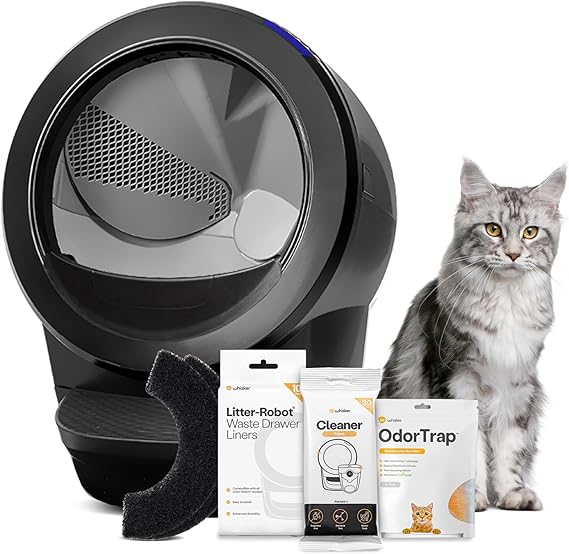
Definition and General Characteristics
Maggots are known for their rapid development and voracious appetite. They thrive in environments rich in decaying organic material, which includes decomposing food, animal waste, and other organic substances. Their presence is usually indicative of poor sanitation or decomposing material in the vicinity.
Types of Flies That Produce Maggots
Several types of flies can lay eggs that develop into maggots. The most common culprits are houseflies (Musca domestica), blowflies (Calliphoridae family), and fruit flies (Drosophilidae family). Houseflies and blowflies are particularly notorious for seeking out fecal matter and decomposing organic material as breeding grounds.
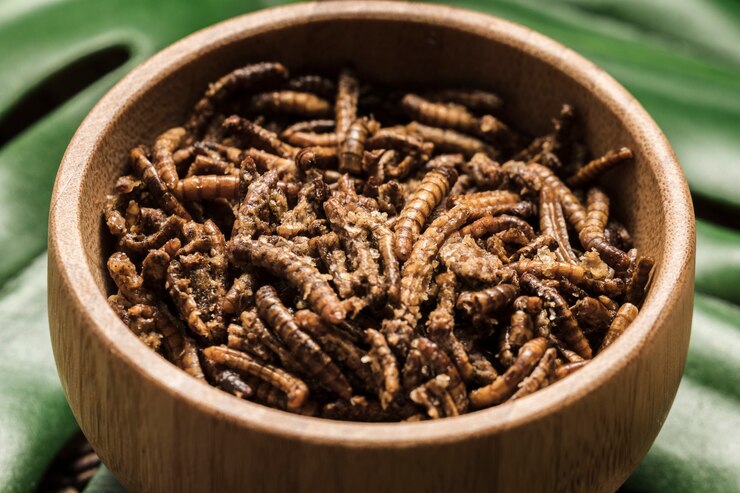
Overview of the Issue
Discovering maggots in your cat’s litter box is more than just an unpleasant surprise; it’s a sign of underlying hygiene or environmental issues that need to be addressed. The presence of maggots can lead to various health risks for both your cat and your household, making it essential to understand the causes and implement effective preventive measures.
Causes of Maggots in Cat Litter Box
Finding maggots in your cat’s litter box can be an unsettling experience. Understanding the causes behind this issue is essential for addressing it effectively and preventing future occurrences. Several factors contribute to the presence of maggots in a cat litter box, ranging from hygiene practices to environmental conditions. Here’s a detailed look at the primary causes:
Hygiene Factors
Hygiene plays a crucial role in preventing maggot infestations in your cat’s litter box. Poor sanitation can create an ideal environment for flies to lay eggs, which then hatch into maggots.
Frequency of Litter Box Cleaning
The frequency with which you clean your cat’s litter box is a significant factor in preventing maggot infestations. If the litter box is not cleaned regularly, it can accumulate feces and urine, which attract flies. Flies lay eggs on decaying organic matter, and the resulting larvae, or maggots, will thrive in such conditions. To prevent this, the litter box should be scooped daily to remove waste, and the litter should be completely replaced and the box cleaned weekly.
Type of Litter Used and Its Properties
The type of litter you use can also affect the likelihood of maggots appearing. Certain types of litter are more effective at controlling odors and moisture, which can deter flies. Clumping litters are particularly good at encapsulating waste, making it easier to remove feces and urine clumps that attract flies. On the other hand, non-clumping litters may require more frequent changes to prevent the buildup of organic matter that can attract flies.
Environmental Factors
Environmental conditions surrounding the litter box can significantly impact the likelihood of maggot infestations. Flies are drawn to specific environments where they can lay their eggs.
Temperature and Humidity Conditions
Flies prefer warm and humid environments for breeding. High temperatures and humidity levels can accelerate the life cycle of flies, leading to a rapid increase in the maggot population. If the litter box is placed in a warm, humid area, it becomes an attractive site for flies to lay their eggs. Ensuring the litter box is in a cooler, well-ventilated area can help reduce the risk of maggots.
Presence of Organic Matter
The presence of organic matter, such as food remnants or fecal matter, is a primary attractant for flies. Flies seek out decomposing organic material to lay their eggs, providing a food source for the emerging larvae.
Food Remnants or Fecal Matter
Ensuring that your cat’s litter box is free from food remnants and cleaning up fecal matter promptly can significantly reduce the risk of attracting flies. Cats might occasionally bring food near their litter box, or crumbs might fall into it. These food particles, combined with fecal matter, create an ideal breeding ground for flies.
Other Contributing Factors
Several additional factors can contribute to the presence of maggots in your cat’s litter box. These factors often involve the surrounding environment and general household cleanliness.
Garbage bins and waste areas near the litter box can attract flies, which may then find their way to the litter box. Flies are drawn to decomposing organic material commonly found in household garbage. If garbage bins are not sealed properly, flies can easily access and breed in them, increasing the risk of maggot infestations in the nearby litter box.
Health Implications
Potential Health Risks to Cats
Maggots in a cat’s litter box can pose several health risks to your feline companion. Flies are attracted to decaying organic matter, such as feces and urine-soaked litter, where they lay eggs. When these eggs hatch into maggots, they can potentially cause harm to your cat in the following ways:
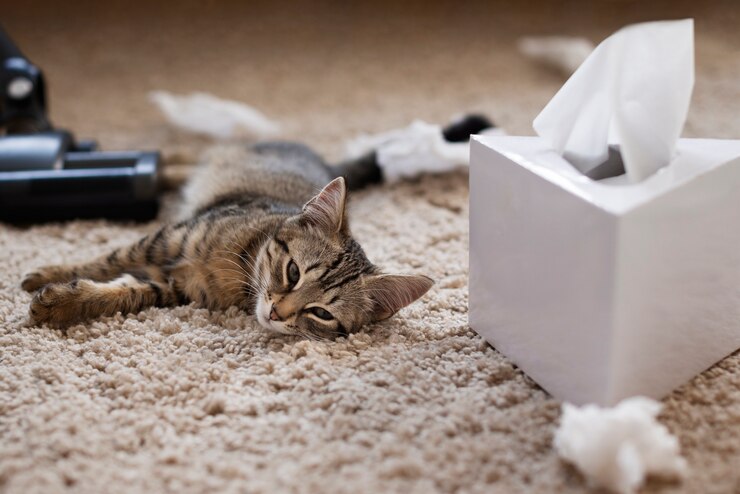
- Infections: Maggots themselves can carry bacteria and other pathogens. If your cat comes into contact with maggots or their waste, there is a risk of these pathogens entering your cat’s body through open wounds or ingestion. This can lead to infections, which may require veterinary treatment.
- Diseases: Flies can transmit diseases to cats through their bites or by contaminating the environment with pathogens. These diseases can range from bacterial infections to parasitic infestations, depending on the type of fly and the specific pathogens they carry.
- Behavioral Impacts: Cats are naturally clean animals and may avoid using a litter box that is infested with maggots. This can lead to inappropriate elimination behaviors, where your cat may urinate or defecate outside the litter box, causing further sanitation issues and potential stress for both you and your pet.
Potential Health Risks to Humans
Maggots in a cat’s litter box not only affect your cat’s health but can also pose risks to human members of the household:
- Allergies: Some individuals may be allergic to maggots or their waste products. Exposure to maggots can trigger allergic reactions, ranging from mild skin irritation to more severe respiratory symptoms in sensitive individuals.
- Infections: Just as with cats, humans can also be at risk of infections if exposed to maggots or contaminated areas where maggots have been present. Bacteria and pathogens carried by flies can cause infections if they enter the body through cuts, abrasions, or mucous membranes.

Individuals with allergies or compromised immune systems may be particularly susceptible to reactions caused by maggots or the bacteria they carry. Maintaining a clean and sanitary litter box environment is crucial for the health of all household members.
Preventive Measures
Best Practices for Cleaning the Litter Box
To prevent maggot infestations, adhere to a strict cleaning regimen. Scoop the litter box at least once daily, and replace the litter entirely every week. Wash the litter box with mild detergent and hot water, and ensure it is completely dry before adding fresh litter.
Recommended Cleaning Schedule
A recommended cleaning schedule includes daily scooping and weekly full cleanings. For households with multiple cats, consider cleaning more frequently to maintain optimal hygiene.
Choosing the Right Litter
Clumping litters are generally more effective at controlling odors and making waste removal easier. Litters with added deodorizers or antimicrobial agents can further reduce the likelihood of attracting flies.
Each type of litter has its pros and cons. Clumping litters are convenient for waste removal but can be dusty. Non-clumping litters may need to be changed more frequently but can be less expensive. Silica gel litters offer excellent odor control but are often pricier.
Environmental Control
Keeping the Litter Box Area Dry and Well-Ventilated
Flies thrive in humid environments, so keeping the litter box area dry and well-ventilated can help deter them. Use fans or dehumidifiers if necessary to maintain a dry environment.
Proper Disposal of Organic Waste
Ensure that food remnants and other organic waste are disposed of properly and promptly. Sealed garbage bins can prevent flies from accessing potential breeding grounds.
Additional Preventive Steps
Use of Fly Traps and Repellents
Fly traps and repellents can be effective in reducing the fly population around your home. Place fly traps near windows and doors, and consider using natural repellents like citronella or eucalyptus.
Sealing Garbage Bins and Using Liners
Garbage bins should be sealed tightly to prevent flies from accessing the contents. Using liners can make it easier to keep bins clean and free of organic residue that attracts flies.
Dealing with an Infestation
Steps to Take When Maggots Are Found
If you discover maggots in your cat’s litter box, act quickly. Remove your cat from the area, and dispose of the infested litter in a sealed bag. Thoroughly clean and disinfect the litter box before refilling it with fresh litter.
Safe Removal and Disposal of Maggots
Use gloves to remove and dispose of maggots safely. Place them in a sealed plastic bag and dispose of it in an outdoor garbage bin.
Deep Cleaning and Disinfection
Methods for Thoroughly Cleaning and Disinfecting the Litter Box
After removing the maggots, wash the litter box with hot water and mild detergent. Disinfect the box with a solution of bleach and water (1:10 ratio), and allow it to air dry completely before adding new litter.
Recommended Cleaning Products
Use mild detergents and disinfectants that are safe for pets. Avoid harsh chemicals that could leave residues harmful to your cat.
Long-Term Solutions
Strategies to Prevent Future Infestations
Maintain a regular cleaning schedule and keep the litter box area dry and well-ventilated. Consider using fly traps and repellents around the house to reduce the fly population.
Consulting with a Veterinarian if Necessary
If maggot infestations persist, consult with your veterinarian. They can provide additional advice and recommend products that can help keep the litter box environment clean and maggot-free.
Alternative Solutions and Products
How Automatic Litter Boxes are Effective in Preventing Maggots?
Automatic litter boxes scoop waste into a separate compartment, reducing the amount of organic material left exposed. This can help prevent maggot infestations by removing waste more efficiently.
Cost and Maintenance Considerations
Automatic litter boxes can be more expensive than traditional ones and may require regular maintenance. However, their convenience and effectiveness in keeping the litter box clean can be worth the investment.
Specialized Litter Treatments
There are litter additives available that contain insect-repelling ingredients. These products can help deter flies and prevent them from laying eggs in the litter box.
Natural vs. Chemical Treatments
Natural treatments, such as diatomaceous earth and shredded newspaper litter, can be effective and safer for your cat. Chemical treatments may offer more robust protection but can come with risks if not used properly.
Homemade Remedies
DIY Solutions for Preventing Maggots
Homemade remedies, such as adding a few drops of essential oils (like eucalyptus or lavender) to the litter, can help repel flies. Regularly cleaning with vinegar can also keep the litter box area sanitary.
Conclusion
Maintaining a maggot-free litter box environment is essential for the health and well-being of your cat and household. Regular cleaning, proper litter selection, and effective environmental controls are key to preventing maggot infestations. By staying vigilant and proactive, pet owners can ensure a clean and safe space for their feline friends.
Final Thoughts on Maintaining a Maggot-Free Litter Box Environment
Consistent effort and attention to detail are necessary to keep your cat’s litter box clean and free from maggots. Implementing the preventive measures and solutions discussed in this article will help you create a healthier environment for both your pet and your family.
Encouragement for Pet Owners to Stay Vigilant and Proactive
Preventing maggots in your cat’s litter box requires ongoing vigilance and proactive measures. By following best practices and addressing issues promptly, you can ensure a safe and comfortable home for your beloved cat.
FAQs
Why are there maggots in my cat’s litter box?
Maggots appear when flies lay eggs in dirty or moist litter boxes. The eggs hatch into larvae (maggots), especially if there’s old waste, food scraps, or warm, humid conditions present.
Can maggots harm my cat?
While maggots themselves may not always directly harm your cat, they can carry bacteria and germs that pose a risk to your cat’s health. In rare cases, maggots can infest open wounds or get into your cat’s fur.
How do flies get into a clean house and litter box?
Flies can enter through open windows, doors, or cracks, especially if they smell organic waste or moisture. If the litter box isn’t scooped regularly or has leftover waste, it becomes an ideal place for flies to lay eggs.
How can I prevent maggots from appearing in the litter box?
Here are simple steps:
Scoop waste daily
Use covered or enclosed litter boxes
Keep the box in a cool, dry area
Use odor-control or antibacterial litter
Clean the box thoroughly once a week with hot water and mild soap
Can I use vinegar or bleach to clean the litter box and kill maggots?
Yes. White vinegar can help kill maggots and remove odors. For deeper cleaning, use a diluted bleach solution (1:10 ratio), but make sure to rinse thoroughly and let the box dry before your cat uses it again.
Will changing litter brands help stop maggots?
Possibly. Some litter types like silica gel or antibacterial clumping litters, help reduce moisture and odors, making the box less attractive to flies. Look for odor-controlling or quick-drying formulas.
Should I throw away the entire litter box if I find maggots?
Not always. If the infestation is mild, a thorough cleaning will do. But if the maggots are deeply embedded, or the box is old and scratched (harboring bacteria), it’s best to replace it with a new one.
Can maggots return after I’ve cleaned the box?
Yes, if the underlying issue isn’t fixed (like poor hygiene, leftover food nearby, or moisture), flies may return and lay eggs again. Regular cleaning and odor control are key to stopping repeat infestations.
Is it okay to use insect spray around the litter box?
Avoid using chemical sprays near your cat’s litter area. Instead, use pet-safe fly traps or natural repellents like citronella, cloves, or apple cider vinegar near the litter box area — but out of reach of your cat.
Do covered litter boxes attract fewer flies?
Yes, covered or enclosed litter boxes limit fly access, trap odors, and keep waste out of sight. Just ensure proper ventilation and frequent scooping, as odor build-up can still occur inside.

